Cash is the lifeline of Gaza’s shattered economy – and like food, fuel and medicine in the war-ravaged enclave, it is vanishing fast.
With banks and ATMs largely out of service, residents have turned to an unregulated network of powerful cash brokers to retrieve their own funds, often at a steep cost. Commission rates have surged, in some cases climbing to 40%.
“The people are crying blood because of this,” said Ayman al-Dahdouh, a school director in Gaza City. “It’s suffocating us, starving us.”
In a country already grappling with runaway inflation, soaring unemployment and shrinking savings, the cash crunch is deepening the financial crisis due to Israel’s brutal attacks and merciless blockade
Some families have been left with no choice but to sell personal belongings just to afford basic necessities.
The cash that is available has even lost some of its value. Palestinians use the Israeli currency, the shekel, for most transactions.
Yet with Israel no longer resupplying the territory with newly printed banknotes, merchants are increasingly reluctant to accept frayed bills.
Gaza’s punishing cash shortage has several root causes, experts say.
To curtail Hamas’ activities, Israel argues, it stopped allowing cash into Gaza at the start of its genocidal war.
Around the same time, many wealthy families withdrew their money from banks before fleeing the territory.
Rising fears about Gaza’s financial system also prompted foreign businesses selling goods in the territory to demand cash payments.
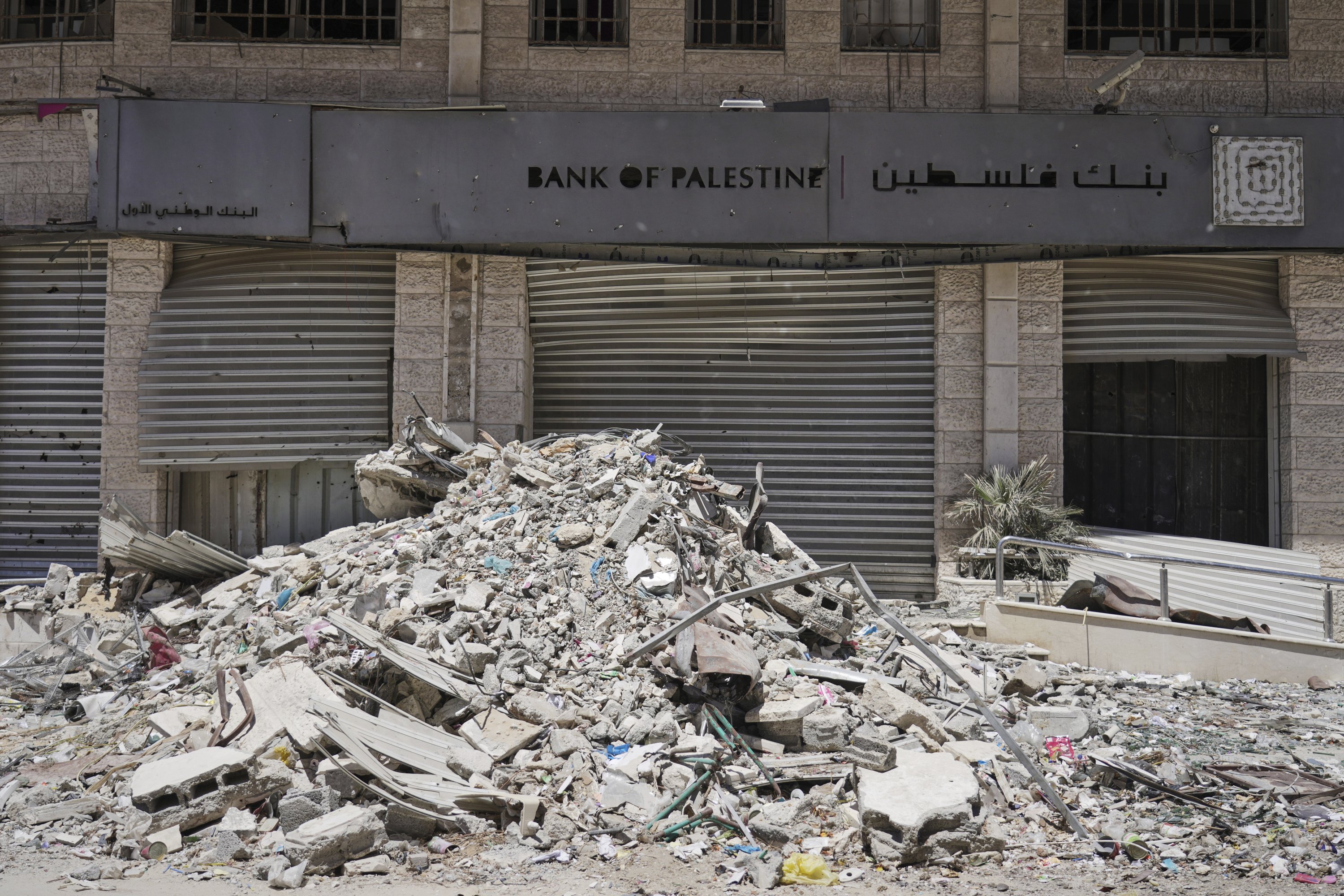
As Gaza’s money supply dwindled and civilians’ desperation grew, cash brokers’ commissions – around 5% at the war’s start – skyrocketed.
Those needing cash transfer money electronically to a broker and moments later receive a fraction of that amount in bills.
Many brokers openly advertise their services, while others operate more discreetly.
Some grocers and retailers have also begun exchanging cash for customers.
“If I need $60, I have to transfer $100,” said Mohammed Basheer al-Farra, who lives in southern Gaza after being displaced from Khan Younis. “This is the only way we can buy essentials, like flour and sugar. We lose nearly half our money just to be able to spend it.”
In 2024, inflation in Gaza surged by 230%, according to the World Bank. It dropped slightly during the cease-fire that began in January, only to spike again after Israel ended the truce in March.
About 80% of people in Gaza were unemployed at the end of 2024, according to the World Bank, and the figure is likely higher now. Those with jobs are mostly paid by direct deposits into their bank accounts.
But “when you want to buy vegetables, food, water, medication – if you want to take transportation, or you need a blanket, or anything – you must use cash,” al-Dahdouh said.
Shahid Ajjour’s family has been living off savings for two years after the pharmacy and other businesses they owned were ruined by the war.
“We had to sell everything just to get cash,” said Ajjour, who sold her gold to buy flour and canned beans. The family of eight spends the equivalent of $12 every two days on flour; before the war, that cost less than $4.
Sugar is very expensive, costing the equivalent of $80-$100 per kilogram (2.2 pounds), multiple people said; before the war, it was less than $2.
Gasoline costs about $25 per liter, or roughly $95 per gallon, when paying the lower, cash price.
The bills in Gaza are tattered after 21 months of war.
“Money is so fragile, it feels as if it is going to melt in your hands,” said Mohammed al-Awini, who lives in a tent camp in southern Gaza.
Small business owners said they are under pressure to ask customers for undamaged cash because suppliers demand pristine bills.
Thaeir Suhwayl, a flour merchant in Deir al-Balah, said his suppliers recently demanded payment only in brand-new 200-shekel ($60) banknotes, which he said are rare. Most civilians pay him with 20-shekel ($6) notes that are often in poor condition.
On a recent visit to the market, Ajjour transferred the shekel equivalent of about $100 to a cash broker and received about $50 in return. But when she tried to buy household supplies from a merchant, she was turned away because the bills weren’t in good condition.
“So the worth of your $50 is zero in the end,” she said.
This problem has given rise to a new business in Gaza: money repair. It costs between 3 and 10 shekels ($1-$3) to mend old banknotes. But even cash repaired with tape or other means is sometimes rejected.
After most banks closed in the early days of the war, those with large cash reserves suddenly held immense power.
“People are at their mercy,” said Mahmoud Aqel, displaced from his home in southern Gaza. “No one can stop them.”
The war makes it impossible to regulate market prices and exchange rates, said Dalia Alazzeh, an expert in finance and accounting at the University of the West of Scotland. “Nobody can physically monitor what’s happening,” she said.
A year ago, the Palestine Monetary Authority, the equivalent of a central bank for Gaza and the West Bank, sought to ease the crisis by introducing a digital payment system known as Iburaq.
It attracted half a million users, or a quarter of the population, according to the World Bank, but was ultimately undermined by merchants insisting on cash.
Israel sought to increase financial pressure on Hamas earlier this year by tightening the distribution of humanitarian aid, which it said the group routinely siphoned off and then resold.
Experts said it is unclear whether cash brokers’ activities benefit Hamas, as some Israeli analysts claim.
The war has made it difficult to determine who controls economic activity in the territory, said Omar Shabaan, director of Palthink for Strategic Studies, a Gaza-based think tank.
“It’s a dark place now. You don’t know who is bringing cigarettes into Gaza,” he said, giving one example. “It’s like a mafia.”
These wealthy traders are likely the ones running cash brokerages and selling basic foodstuffs, he said. “They benefit by imposing these commissions.”
Once families run out of cash, they are forced to turn to humanitarian aid.
Al-Farra said that is what led him to seek food at an aid distribution center, where Palestinians often jostle for sacks of flour and boxes of pasta.
“This is the only way I can feed my family,” he said.

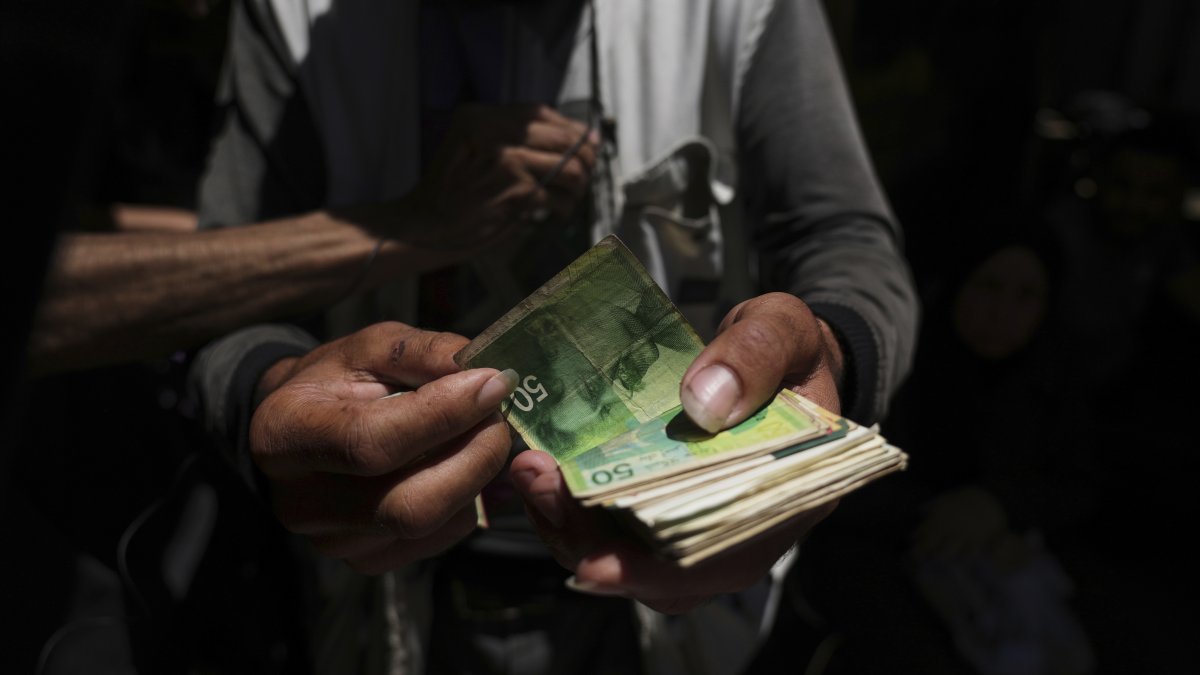
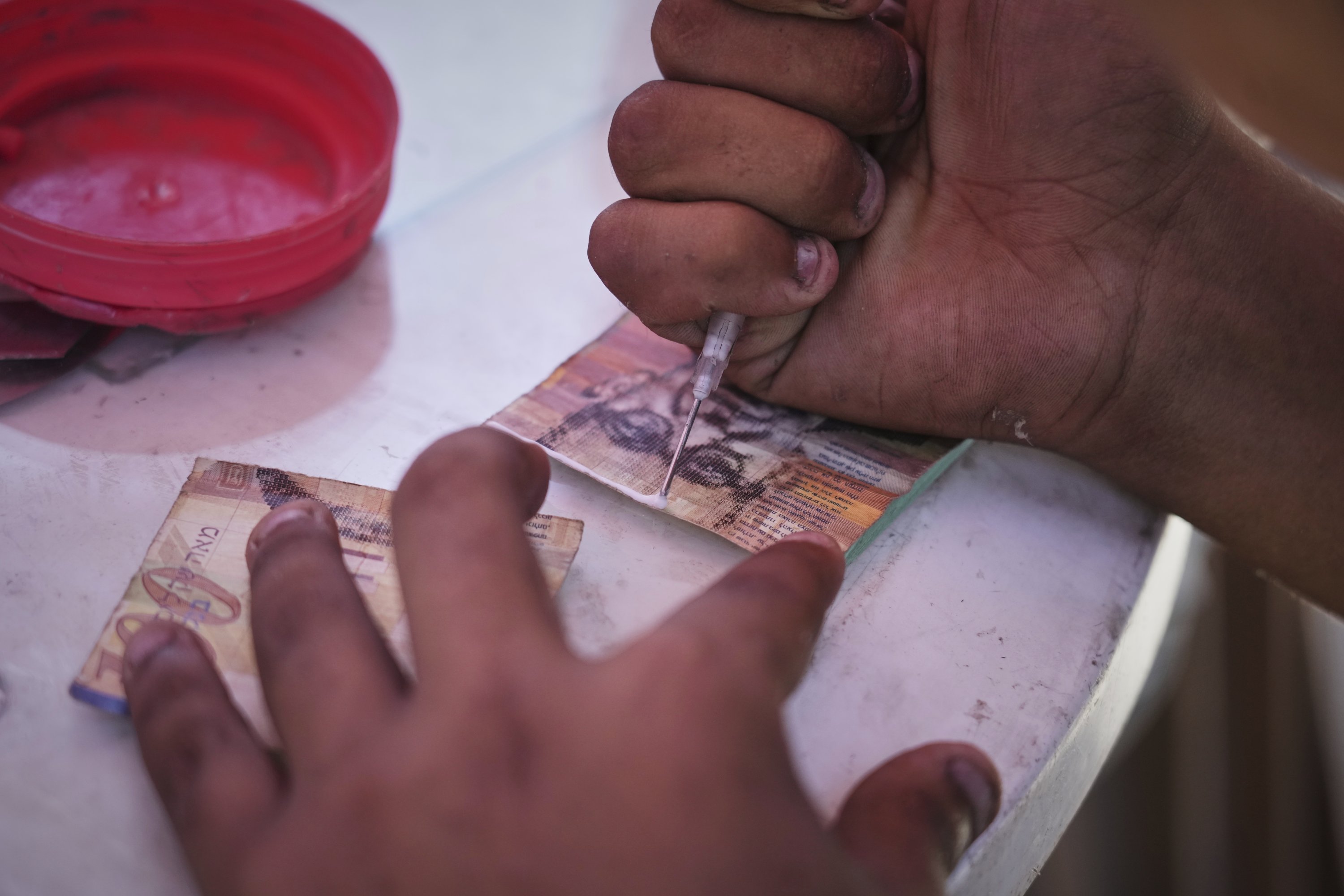
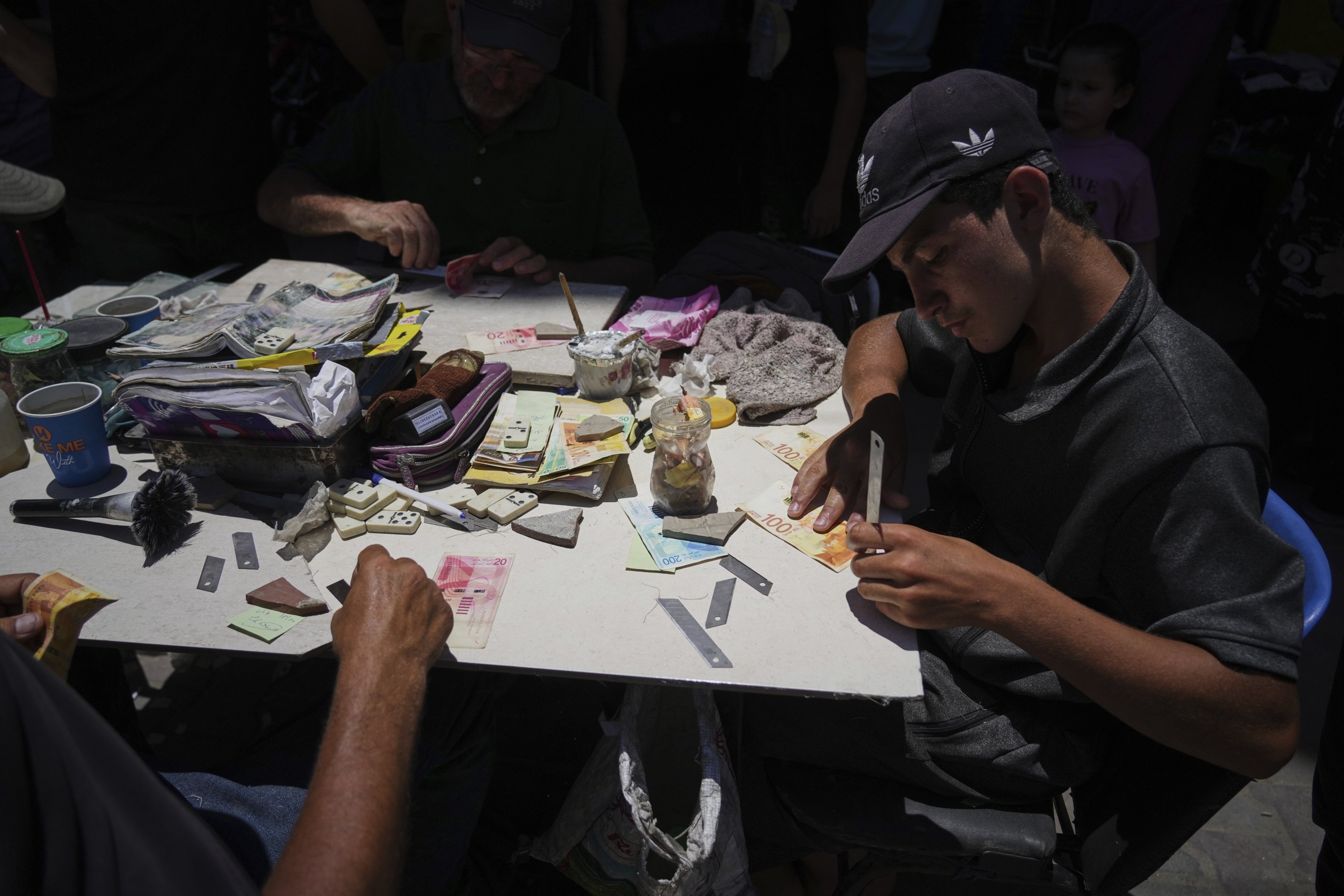
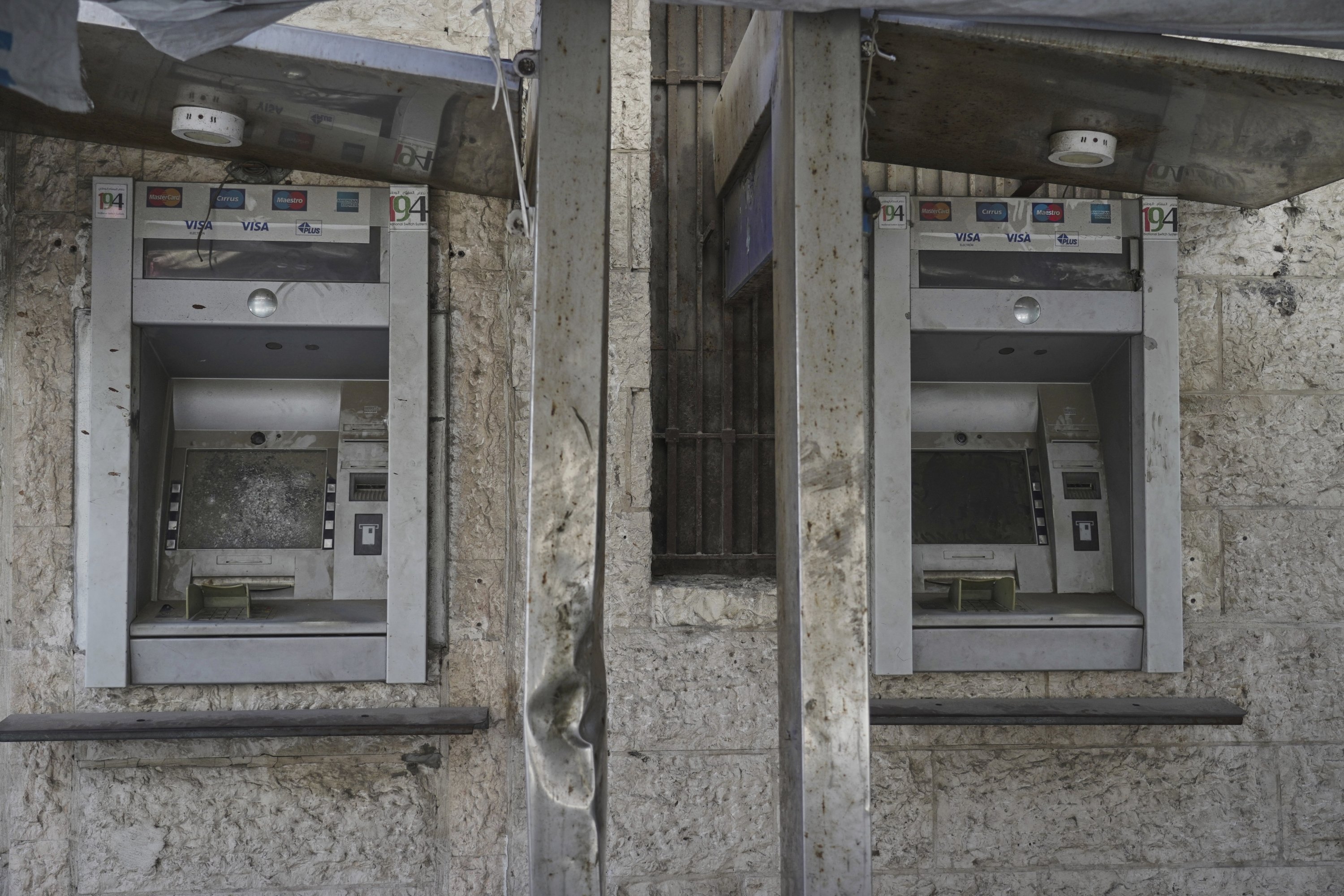
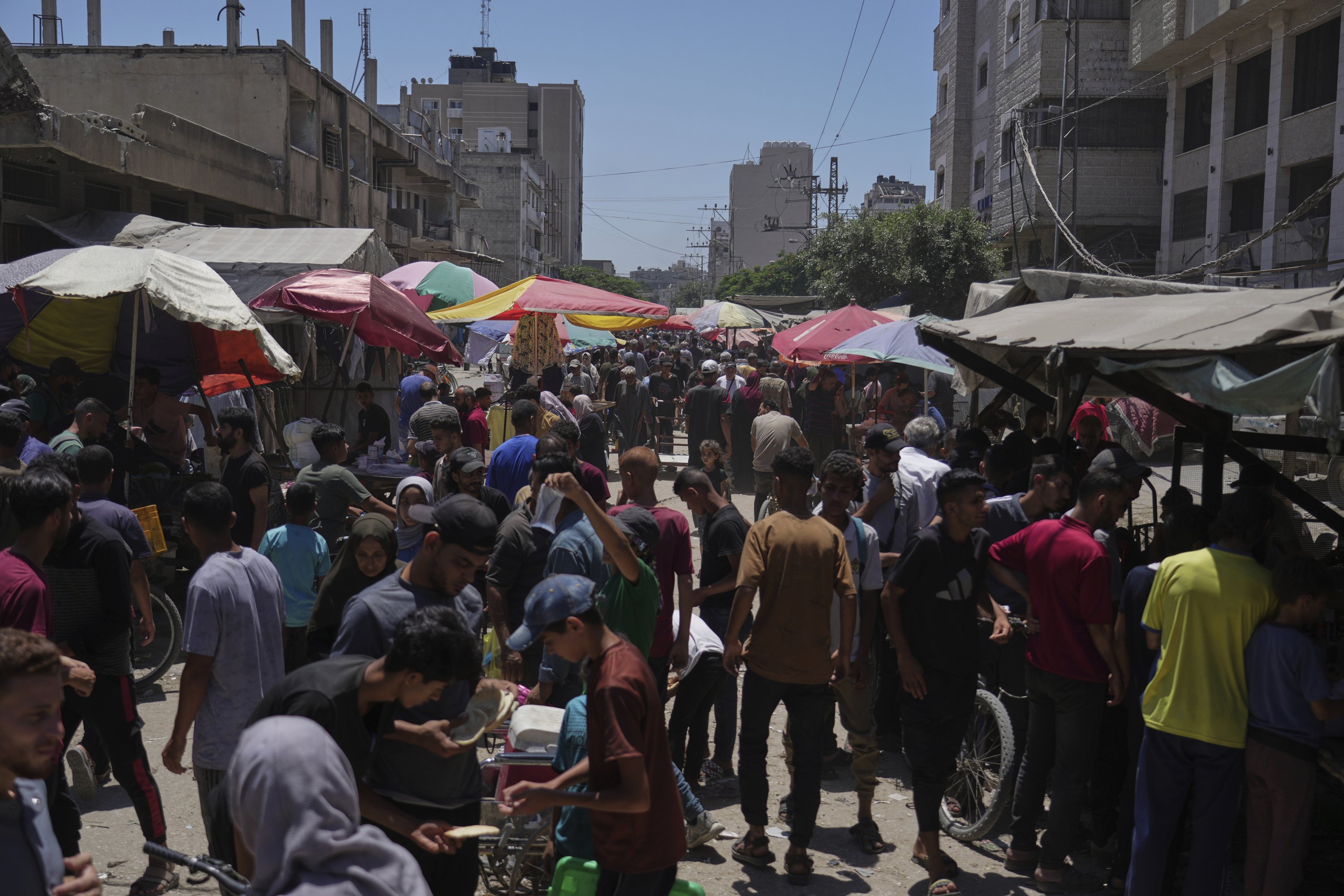

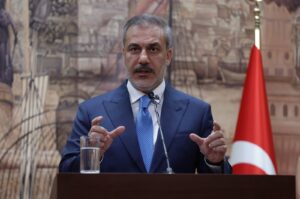

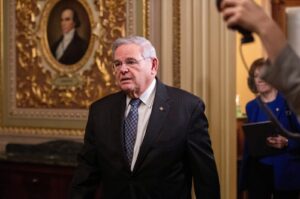






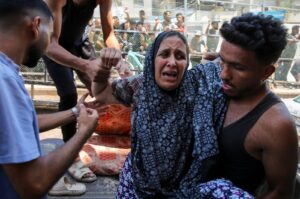
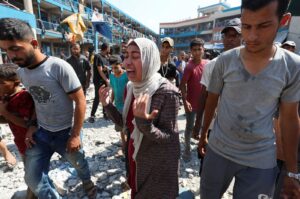
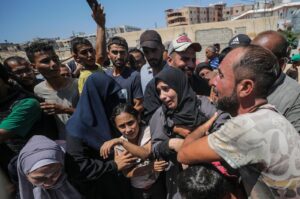

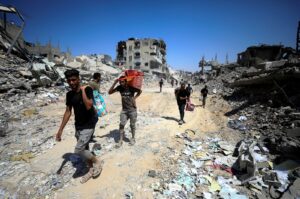


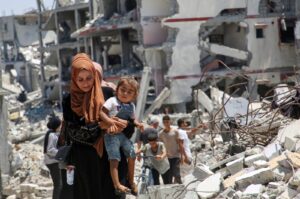
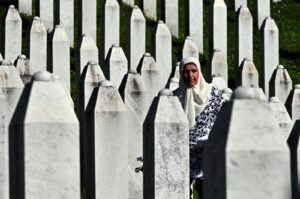
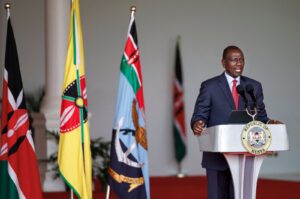

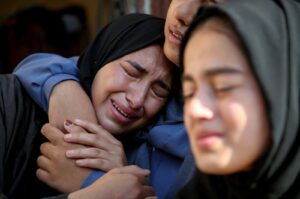



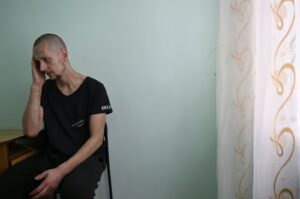
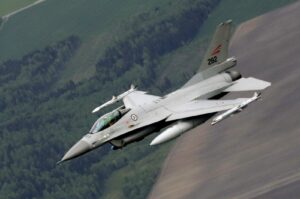
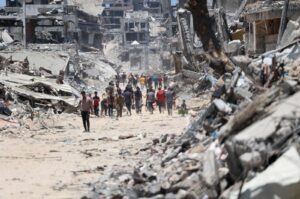
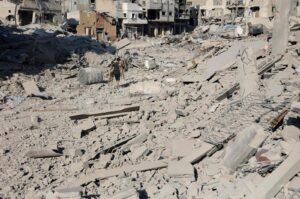
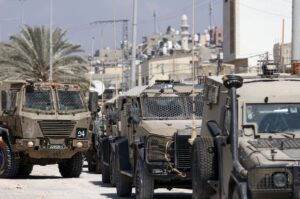
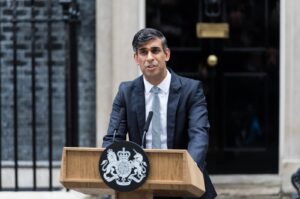
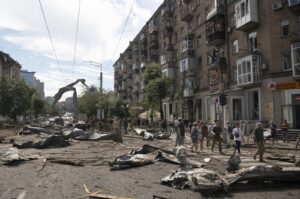
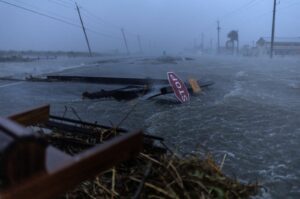
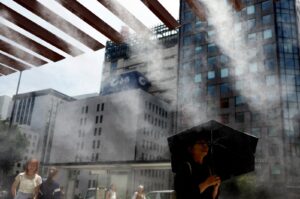
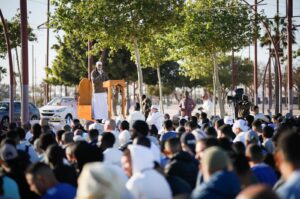



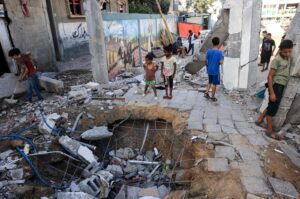
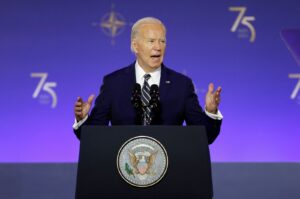
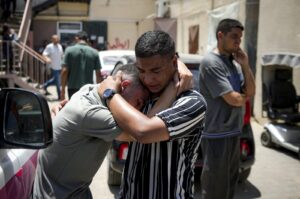

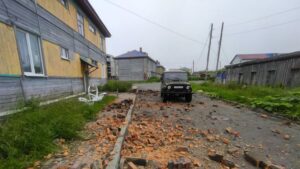
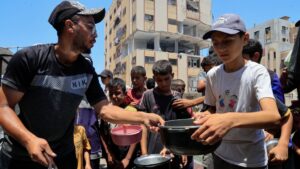



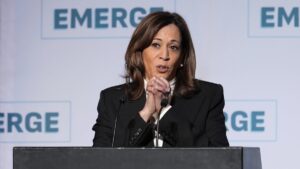

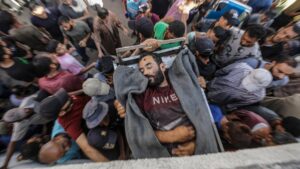
Be First to Comment